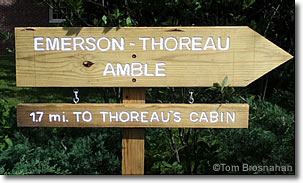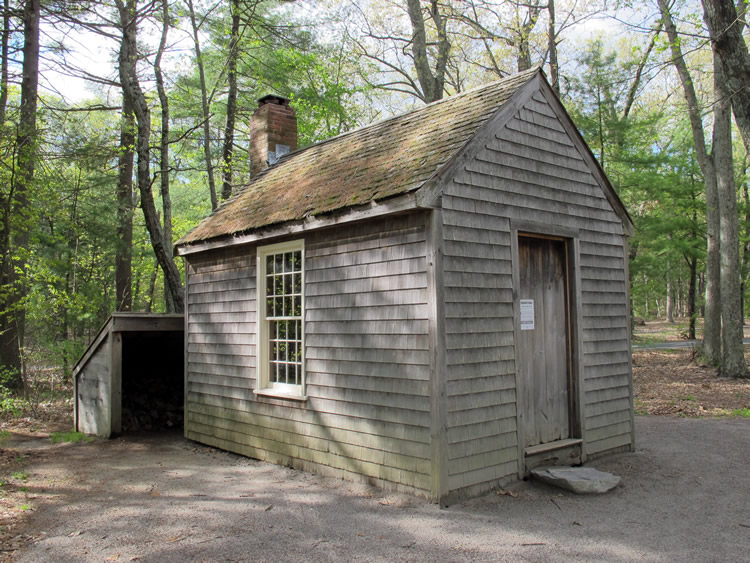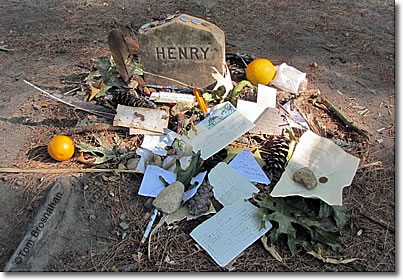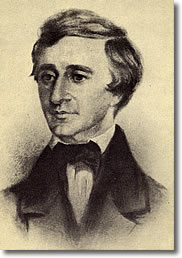Henry David Thoreau (1817-1862) was born in Concord, Massachusetts and graduated from Harvard College in 1837.
Like many college graduates of the time he became a teacher, and taught in his brother's school from 1837 to 1841.
Thoreau & Emerson
Ralph Waldo Emerson befriended him and gave him a job as handyman and caretaker in his house in Concord so they could talk, and Thoreau could earn some spending money and have a quiet place to think and write.
Thoreau absorbed many of Emerson's idealistic ideas, but unlike Emerson, who had fame and family responsibilities, Thoreau had the time and personal freedom to actually put these idealistic ideas into practice.
Thoreau & Walden Pond
In 1845 Thoreau built a small house on land owned by Emerson on the shore of Walden Pond, two miles (3.2 km) from the center of Concord.

The Emerson-Thoreau Amble, a footpath leading from Emerson's house to Walden Pond in Concord MA.
He planted a beanfield and lived by selling beans and doing whatever work he cound find: occasional teaching, surveying, handyman jobs, even ditch-digging.
He needed only a few hours' work per week to buy the few things he needed. The rest of the time he spent observing and communing with nature, taking notes and writing. He wanted to "live deep and suck out all the marrow of life."

Replica of Henry David Thoreau's house at Walden Pond, Concord MA
Thoreau's Writings
He stayed at the pond for "two years, two months and two days," then returned to the center of Concord to write, with brief periods elsewhere. In 1849 his first book, A Week on the Concord and Merrimack Rivers, appeared—to almost universal disregard.
His most famous work, Walden, or Life in the Woods was published in 1854, and eventually made his reputation as a supreme individualist, naturalist, conservationist, pacifist and proponent of Transcendentalism, the spiritual philosophy developed and espoused by Emerson and his circle.
He wrote about his travels in The Maine Woods (1863), Excursions (1863), Cape Cod (1865) and A Yankee in Canada (1866). In all, his writings fill 20 volumes.
Thoreau's pacifist writings inspired Gandhi, and his writings on nature and life apart from society have inspired generations of conservationists, ecologists and lovers of the outdoors.
Thoreau's Grave

Thoreau died in 1862 of tuberculosis and is buried in Sleepy Hollow Cemetery in Concord MA. His grave and Walden Pond are regularly visited by thousands of the people inspired by his writing and his example.
"THOR-oh"
By the way, in his hometown of Concord, his name is pronounced in the old British manner: "THOR-oh," rather than the frenchified "thor-OH."

